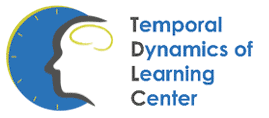NIPS
2012 Workshop
Personalizing Education With Machine Learning
Saturday
December 8, 2012
Harvey's Convention Center, Emerald Bay 1
Lake Tahoe, California
PersonalizingEducation2012@gmail.com
Organizers
Michael
Mozer
Department of Computer Science & Institute of Cognitive Science
University of Colorado Boulder
Javier Movellan
Institute for Neural Computation
University of California San Diego
Robert Lindsey
Department of Computer Science
University of Colorado Boulder
Jacob Whitehill
Department of Computer Science and Engineering
University of California San Diego
Department of Computer Science & Institute of Cognitive Science
University of Colorado Boulder
Javier Movellan
Institute for Neural Computation
University of California San Diego
Robert Lindsey
Department of Computer Science
University of Colorado Boulder
Jacob Whitehill
Department of Computer Science and Engineering
University of California San Diego
Workshop Description
The
field of education has the potential to
be transformed by the
internet and intelligent computer systems. Evidence for the first stage
of this transformation is abundant, from the Stanford online AI and
Machine Learning courses to web sites such as Kahn Academy that offer
on line lessons and drills. However, the delivery of
instruction via web-connected devices is merely a precondition for what
may become an even more fundamental transformation: the
personalization of education.
In traditional classroom settings, teachers must divide their attention and time among many students and hence have limited ability to observe and customize instruction to individuals. Even in one-on-one tutoring sessions, teachers rely on intuition and experience to choose the material and stye of instruction that they believe would provide the greatest benefit given the student's current state of understanding.
In order both to assist human teachers in traditional classroom environments and to improve automated tutoring systems to match the capabilities of expert human tutors, one would like to develop formal approaches that can:
Machine learning provides a rich set of tools, extending classical psychometric approaches, for data-driven latent state inference, policy optimization, and personalization. Years ago, it would have been difficult to obtain enough data for a machine learning approach. However, online interactions with students have become commonplace, and these interactions yield a wealth of data. The data to be mined go beyond what is typed: Cameras and microphones are ubiquitous on portable devices, allowing for the exploitation of subtle video and audio cues. Because web-based instruction offers data from a potentially vast collection of diverse learners, the population of learners should serve useful in drawing inferences about individual learners.
Mining the vast datasets on teaching and learning that emerge over the coming years may both yield important insights into effective teaching strategies and also deliver practical tools to assist both human and automated teachers.
The goal of this workshop is to bring together researchers in machine learning, data mining, and computational statistics with researchers in education, psychometrics, intelligent tutoring systems, and designers of web-based instructional software. Although a relatively young journal and conference on educational data mining has been established (educationaldatamining.org), there are exciting opportunities to enhance interactions between cognitive scientists interested in education and machine learning theoreticians.
In traditional classroom settings, teachers must divide their attention and time among many students and hence have limited ability to observe and customize instruction to individuals. Even in one-on-one tutoring sessions, teachers rely on intuition and experience to choose the material and stye of instruction that they believe would provide the greatest benefit given the student's current state of understanding.
In order both to assist human teachers in traditional classroom environments and to improve automated tutoring systems to match the capabilities of expert human tutors, one would like to develop formal approaches that can:
- exploit subtle aspects of a student's behavior---such as facial expressions, fixation sequences, response latencies, and errors---to make explicit inferences about the student's latent state of knowledge and understanding;
- leverage the latent state to design teaching policies and methodologies that will optimize the student's knowledge acquisition, retention, and understanding; and
- personalize instruction by providing material and interaction suited to the capabilities and preferences of the student.
Machine learning provides a rich set of tools, extending classical psychometric approaches, for data-driven latent state inference, policy optimization, and personalization. Years ago, it would have been difficult to obtain enough data for a machine learning approach. However, online interactions with students have become commonplace, and these interactions yield a wealth of data. The data to be mined go beyond what is typed: Cameras and microphones are ubiquitous on portable devices, allowing for the exploitation of subtle video and audio cues. Because web-based instruction offers data from a potentially vast collection of diverse learners, the population of learners should serve useful in drawing inferences about individual learners.
Mining the vast datasets on teaching and learning that emerge over the coming years may both yield important insights into effective teaching strategies and also deliver practical tools to assist both human and automated teachers.
The goal of this workshop is to bring together researchers in machine learning, data mining, and computational statistics with researchers in education, psychometrics, intelligent tutoring systems, and designers of web-based instructional software. Although a relatively young journal and conference on educational data mining has been established (educationaldatamining.org), there are exciting opportunities to enhance interactions between cognitive scientists interested in education and machine learning theoreticians.
Potential Participants
We hope to draw participants
from diverse academic backgrounds,
including:
- machine learning theoreticians interested in formal approaches to teaching from a computational perspective
- AI researchers interested in computer vision and EEG to recover information about an individual's affective and mental state
- established researchers in intelligent tutoring systems
- psychologists studying practical aspects of human learning and memory
- developers of web sites that collect large volumes of student data
- distinguished educators, including educators who can discuss the current state of the classroom, and educators in the vanguard of the e-ducation revolution
Schedule Overview
Sponsorship
| The workshop is sponsored in part by the UCSD Temporal Dynamics of Learning Center, which is funded by the National Science Foundation. |  |